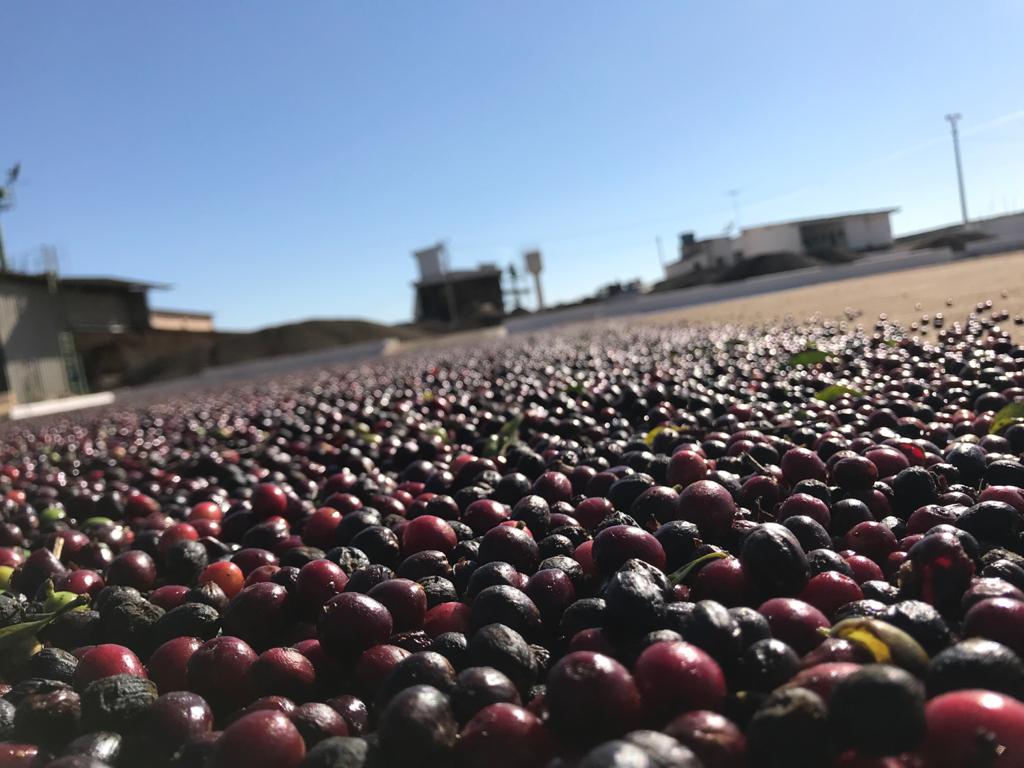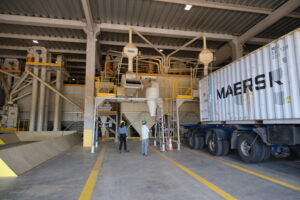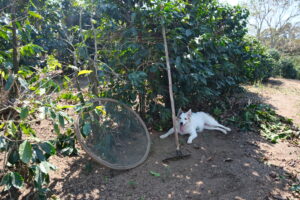As the global demand for specialty coffee continues to rise, the approach to sourcing green coffee has become a critical aspect of the supply chain. By now it is evident for roasters that prices for specialty are influenced by the NY market as it is a matter of making simple maths. The price paid per kilo of entry level specialty is truly not miles more than the NY price, even with all the imports costs involved.
Some importers and trade platforms suggest roasters secure their coffee needs more than a year in advance, often at a discount to pre contract it. This is before the coffee even left the trees. However, this strategy may not be the most beneficial for farmers, roasters or the overall quality of the coffee.
I know this point of view might come across as controversial, but I would like to give my opinion, from the perspective of a Brazilian producer and exporter, on why contracting coffee before it has been harvested might not be as simple as it may sound.
The farmer’s perspective: price and profitability
One major concern with buying coffee far in advance is its financial impact on farmers. Contrary to the belief that advance contracts provide financial security, farmers typically do not get paid until they deliver the coffee to the exporter. This arrangement locks them into a set price, which may not reflect future market conditions. If the market price increases, farmers miss out on potential profits, delivering coffee at a loss relative to current market values. Given current climate conditions of extreme weather events, inflation rates, political events and the global cost of living increase, locking in a price long term may not benefit them.
I have seen the specialty coffee industry pushing forward contracts onto roasters with the excuse that it secures a fairer income for farmers, but by the reasons just mentioned in the global scenario: this is a move to secure the importers and roasters coffee at a predictable price, without acknowledging that the world in an unpredictable place. Trying to secure coffee at a price that benefits you is fair enough: if that’s the business model. I just think it’s time we call things as they are and not as a beneficial move for producers.
Quality concerns and fair business practices
Advance contracts also raise concerns about coffee quality. Importers and roasters who secure coffee before harvest are betting on the exporter’s ability to meet contract specifications, which can lead to discrepancies in the quality of coffee received. If an exporter cannot buy coffee at the agreed price, they might source cheaper, lower-quality coffee or operate at a loss. We must agree this is not sustainable business for the supply chain.
The reason for this is not because they mean to be dishonest but because It’s very important to mention there is no real national contract obligation for a farmer to deliver a coffee with a future contract. As I said, they don’t receive any advanced payment so it would be unfair if they were enforced by law. It is an agreement and should be fulfilled but my point is: if a farmer agreed to that price before a climate event when he was expecting to produce 50% more coffee, when something happens and he produces half of what was predicted, market prices go up also around 50%, what is his incentive to deliver his coffee for 50% less? I truly don’t mean to discuss moral or ethics here I am just simply exposing a different perspective.
At Bossa Coffee, we prioritise during and post-harvest negotiations to ensure fair pricing and accurate representational quality. We stay in constant contact with farmers, and by confirming purchases only with representative samples and quantity confirmation, we ensure farmers are paid fairly and upfront. This allows them to invest in the next season without financial strain. We don’t ask for credit terms or commitments from them. It is relationship based.
Due to our long-term relationships, farmers know we will buy from them once they have the outcome of harvest, and we keep roasters informed on how that harvest is progressing. There is no need to pressure people on pre-contracting or farmers on pre-selling. Communication and trust between producers, importers, and roasters is vital.
Practical advice: contract fresh, when needed
We strongly advise against speculating on coffee prices by contracting far in advance. Instead, contract fresh coffee that has been harvested and is ready for export when you need it. This approach minimizes risks associated with quality and market fluctuations and ensures that farmers are compensated fairly.
In Brazil the harvest finishes at the end of August / early September. Start talking to your importer in June/July about your needs and ask for PSS, if quality is key for you do not contract per description, unless you have worked with that farm before. Don’t let people rush you.
By contracting coffee post-harvested, you ensure better quality, fair pricing, and a more sustainable business model for everyone in the coffee supply chain. We see farmers as our business partners, and our sourcing practices reflect this philosophy.
Written by: Bruna Costa



